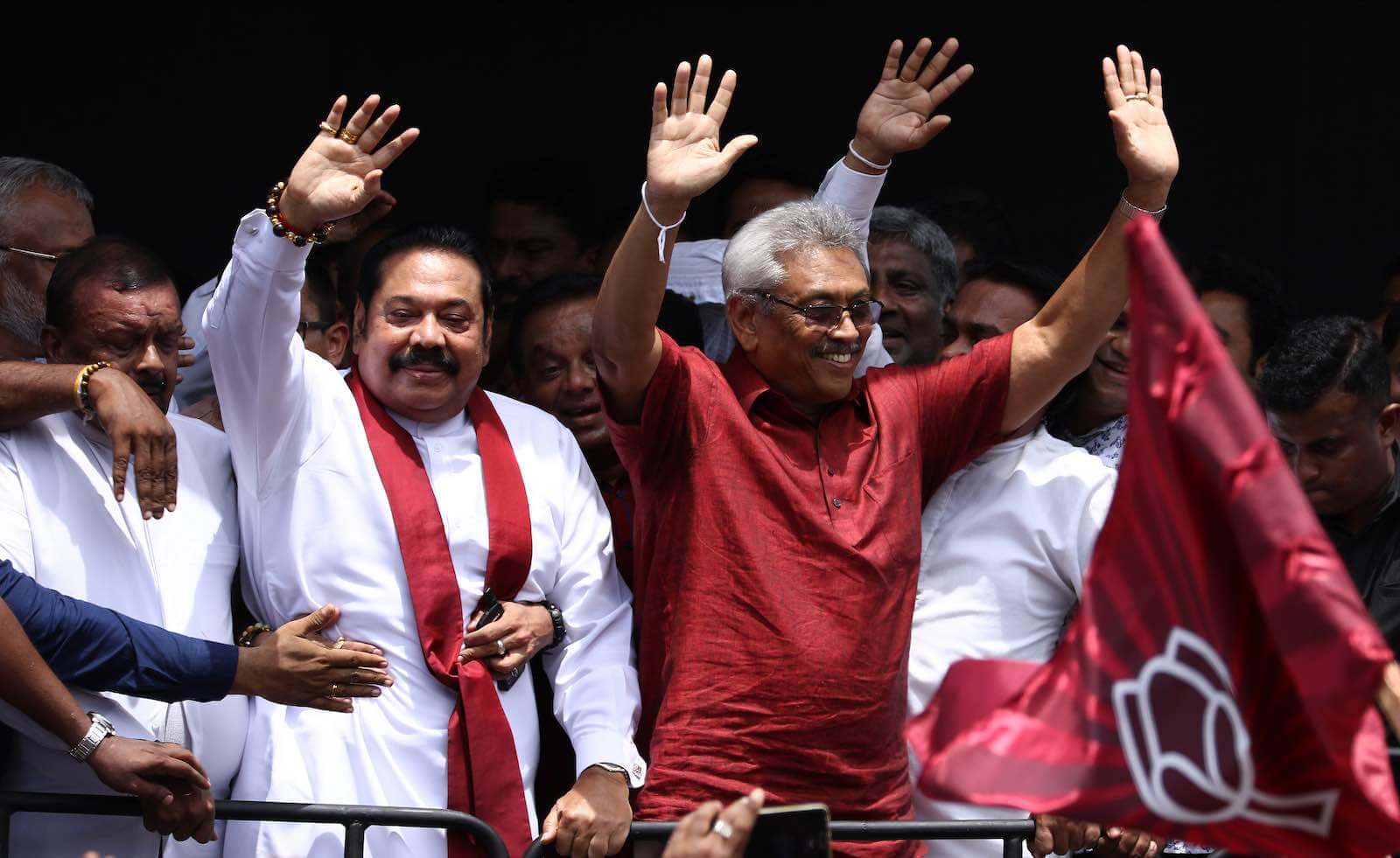Sri Lanka’s parliamentary elections were finally conducted on Wednesday, even amidst the rising COVID-19 cases in the country. As expected, the incumbent Rajapaksa’s ruling party emerged with a majority of seats. The final election count showed that Prime Minister Mahinda Rajapaksa’s party, the Podujana Party (SLPP), won 145 out of the 225 seats. This is merely five seats less than the majority required to pass any constitutional amendment in the parliament. The Samagi Jana Balavegaya emerged as the main opposition, securing 54 seats. However, former Prime Minister Ranil Wickremesinghe’s alliance, the United National Party, merely secured one seat.
President Gotabaya Rajapaksa was elected in November. On March 2, President Gotabaya Rajapaksa announced his decision to dissolve the opposition-controlled Parliament six months ahead of schedule. However, Gotabaya’s vision to expedite the parliamentary elections was obstructed by the onset of the COVID-19 pandemic, which led to two postponements. The election was finally held on August 5.
The campaign was driven by the desire to increase the President’s powers in Sri Lanka. Gotabaya has often expressed his inability to work freely due to the restrictions on his power caused by the 19th Constitutional Amendment. The amendment, which was implemented by Maithripala Sirisena, Rajapaksa’s predecessor, reduced the President’s powers and distributed it between the Parliament and independent commissions. A major hindrance for Rajapaksa to pass amendments, either to the 19th Constitutional Amendment or otherwise, is the minority-controlled Parliament. Any constitutional amendment requires a two-thirds majority to be passed. Rajapaksa’s party does not currently hold such a majority in Parliament. Therefore, a fresh election ushered in a favourable change in this dynamic.
The “super-majority” secured by the Rajapaksa brothers, despite complaints of “authoritarianism and dominance”, is a reflection of the public’s satisfaction with the government’s handling of the COVID-19 crisis. Moreover, the Wickremesinghe led alliance is also facing criticism due to their inaction following the Easter bombing attack in a church in April 2019, which led to the death of 269 people.
For India, Sri Lanka is a key partner in the Indian Ocean. Trade relations between India and Sri Lanka have been surging since the signing of a Free Trade Agreement in 2000. According to figures reported by Sri Lankan Customs, annual bilateral trade between India and Sri Lanka amounts to around $4.93 billion. While Sri Lankan imports from India were valued at $4.16 billion, Sri Lanka exported goods worth $ 767 million. Further, India also provides “development assistance” to Sri Lanka, for which India has committed approximately $3 billion.
The Rajapaksa brothers’ victory is predicted to be favourable for India’s interests in Sri Lanka. Following Mahinda Rajapska’s victory in November, he visited India and met with Indian Prime Minister Narendra Modi, marking his first trip as the elected Prime Minister. The conversation ended on a highly positive note, with both premiers highlighting their commitment to increasing the collaboration between the two countries. The two leaders even exchanged pleasantries after the announcement of Rajaspaka’s victory on Thursday.
Thank you, Prime Minister @PresRajapaksa! It was a pleasure to speak to you. Once again, many congratulations. We will work together to further advance all areas of bilateral cooperation and to take our special ties to ever newer heights. https://t.co/123ahoxlMo
— Narendra Modi (@narendramodi) August 6, 2020
However, in the recent past, India’s relationship with Sri Lanka has been driven by India’s strategic concerns in the Indo-Pacific region, caused by China’s Belt and Road Initiative. India is likely concerned by the Hambantota Port and loan deals that Sri Lanka recently signed with China. The United States, too, is pushing India to strengthen its leadership in the area to counter Chinese aggression. Recently, India also announced its decision to construct a solar power park in Sri Lanka. Several commentators see this as a “foreign policy tool” in response to the growing Chinese investments in the region.

